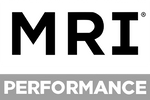Creatine in Your Diet: Foods That Naturally Contain It
Posted by Medical Research Institute on 24th Mar 2025
Creatine is well-known as a popular supplement for enhancing strength, muscle growth, and athletic performance. However, did you know that many whole foods naturally contain creatine? While supplementation is an excellent way to ensure you're getting enough, incorporating creatine-rich foods into your diet can also help support your energy levels and muscle recovery. In this article, we'll explore the best natural sources of creatine and how to optimize your intake.
What is Creatine and Why is it Important?
Creatine is a naturally occurring compound found in muscle cells. It plays a crucial role in energy production, particularly during high-intensity activities like weightlifting and sprinting. Your body produces creatine from amino acids, but a significant portion comes from dietary sources. Increasing your creatine intake through food and supplements can help improve strength, endurance, and recovery.
Whole Food Sources of Creatine
While creatine is primarily found in animal-based foods, certain dietary choices can help you maintain adequate levels naturally.
1. Red Meat
- Beef and steak are among the richest sources of natural creatine.
- A 3.5-ounce (100g) serving of beef contains about 3-5 grams of creatine.
- Lean cuts of beef provide a great protein source along with essential amino acids for muscle growth.
2. Fish
- Fish, especially salmon, tuna, and cod, are excellent sources of creatine.
- Herring, in particular, contains high levels, with about 6-10 grams of creatine per pound.
- Omega-3 fatty acids in fish also support muscle recovery and overall health.
3. Poultry
- Chicken and turkey contain moderate levels of creatine.
- While not as high as red meat or fish, poultry still contributes to overall creatine intake while being a leaner protein source.
4. Pork
- Pork provides a good amount of creatine, similar to beef.
- Opting for lean cuts can help you get the benefits of creatine without excessive saturated fat.
5. Eggs and Dairy
- While eggs and dairy don't contain as much creatine as meat, they still provide amino acids that aid in creatine production.
- Greek yogurt, milk, and cheese offer protein to support muscle repair and growth.
Should You Supplement Creatine?
While whole foods provide creatine, they may not supply enough to maximize muscle performance. For athletes, bodybuilders, or those engaged in high-intensity training, creatine supplementation can help:
- Increase muscle mass and strength
- Improve exercise performance
- Enhance recovery and reduce muscle fatigue
MRI Performance's Creatine Monohydrate is an excellent choice to boost your creatine intake and fuel your workouts. It offers a pure, high-quality source of creatine to enhance your performance and recovery.
Final Thoughts
Incorporating creatine-rich foods into your diet can support muscle function and energy production naturally. While meat, fish, and poultry are the best sources, supplementation can help ensure you're getting optimal levels for peak performance. Whether through diet or supplements like MRI Performance Creatine Monohydrate, maintaining sufficient creatine levels can help you achieve your fitness goals.

